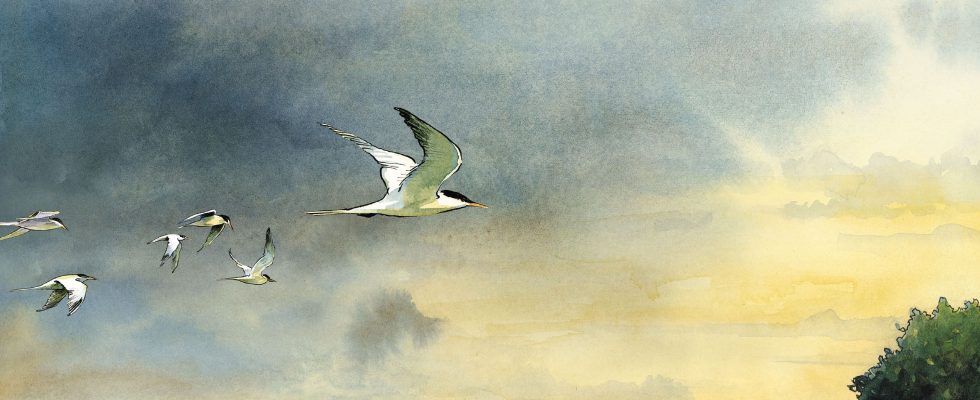Blessed are those who have never considered returning to an old love. Blessed because if despair, naivety, boredom or all three at the same time have pushed some to take action, sending by post or via the Internet a “Hi, beauty! It’s been so long! I I thought very hard of you as I passed Le Select. That hasn’t changed. How about we meet there one evening for a drink?”, schemes of this kind usually end badly. But as with all generalities, there are exceptions, my favorite being the one offered to us by Anna-Eva Bergman and Hans Hartung, married for ten years, separated on the eve of the war, and who found each other again eighteen years later. late to part only in death. In the meantime, Hartung will have left one leg in the war (against the Nazis). It’s a bit expensive to pay for the temptation to come back. Though.
In his latest comic, Loire (Futuropolis), Etienne Davodeau pushes the experience of romantic reunions to the maximum of danger. “In fact, I liked the idea of seeing her again,” confides Louis, his balding hero, in his confident sixties. Agathe, a former mistress with whom he stayed for five years, sent him an email. What a surprise ! She had left him for someone else several decades ago. Since then, no news. And like that, point-blank, she arranges to meet him, not at the Select, but in the house where they once lived, happy, then unhappy, near the Loire.
Emotional, Louis goes there, when suddenly, seized by nostalgia, he decides to walk the last six kilometers, just to gently soak up the scent of the past. In front of the Loire, he feels like taking a dip, as they say. He undresses, completely, like when they were young. But he no longer has the same strength to resist the currents of the river, he is dragged away from his clothes, to the other side of the bank where all things considered, regenerated by this bath of youth, our Adam on the loose decides to spend the night, under the stars, with your ass in the grass, and too bad for the nettles.
He leaves the next morning, naked as a worm, and we rejoice at the idea of witnessing the return of the prodigal lover in this state. But no, this is not a Milo Manara album, Davodeau’s prudish hero goes back to pick up his clothes and presents himself, decently, in front of his bride’s door.
Who is the father ?
She’s not here yet. A young couple lives in the house. Agathe asked them to welcome her. “It will be a pleasure for me to see her,” says the lover impatiently. “Me too,” said a voice behind his back. Louis turns around, and despite the years that have passed, he immediately recognizes Jalil, the bastard who stole Agathe from him. “What are you doing here?!” No time to throw his fist in his face when he sees a car at the end of the road. “It’s Agathe!”
Well no, not yet. It’s Suzanne, the one who stole Agathe from Jalil. And on the next page Nicolas appears, whom no one knows, except Agathe, obviously. In the nasty trick she plays on them, the naughty girl didn’t forget to invite Laure, her daughter. We don’t say his age, so we will wonder for a long time who the father is. Other past loves were invited to the resurrection gathering; some did not respond to Agathe, because they did not want to see her old again, or because they did not want her to see them sick, diminished, old.
The 80 pages that remain to read offer all the possibilities, from general brawls to the creation of a cuckolds club. The plot reserves surprises, but the most interesting thing is the Loire, its lights, its rains, its floods which make the banks imprecise, lengthen the boxes of the album, drowning the artist’s watercolors with melancholy. We go up the river to the circle of empty chairs, the one “of kisses that we did not dare to take, of hearts that must wait for us, of eyes that we never saw again.”
